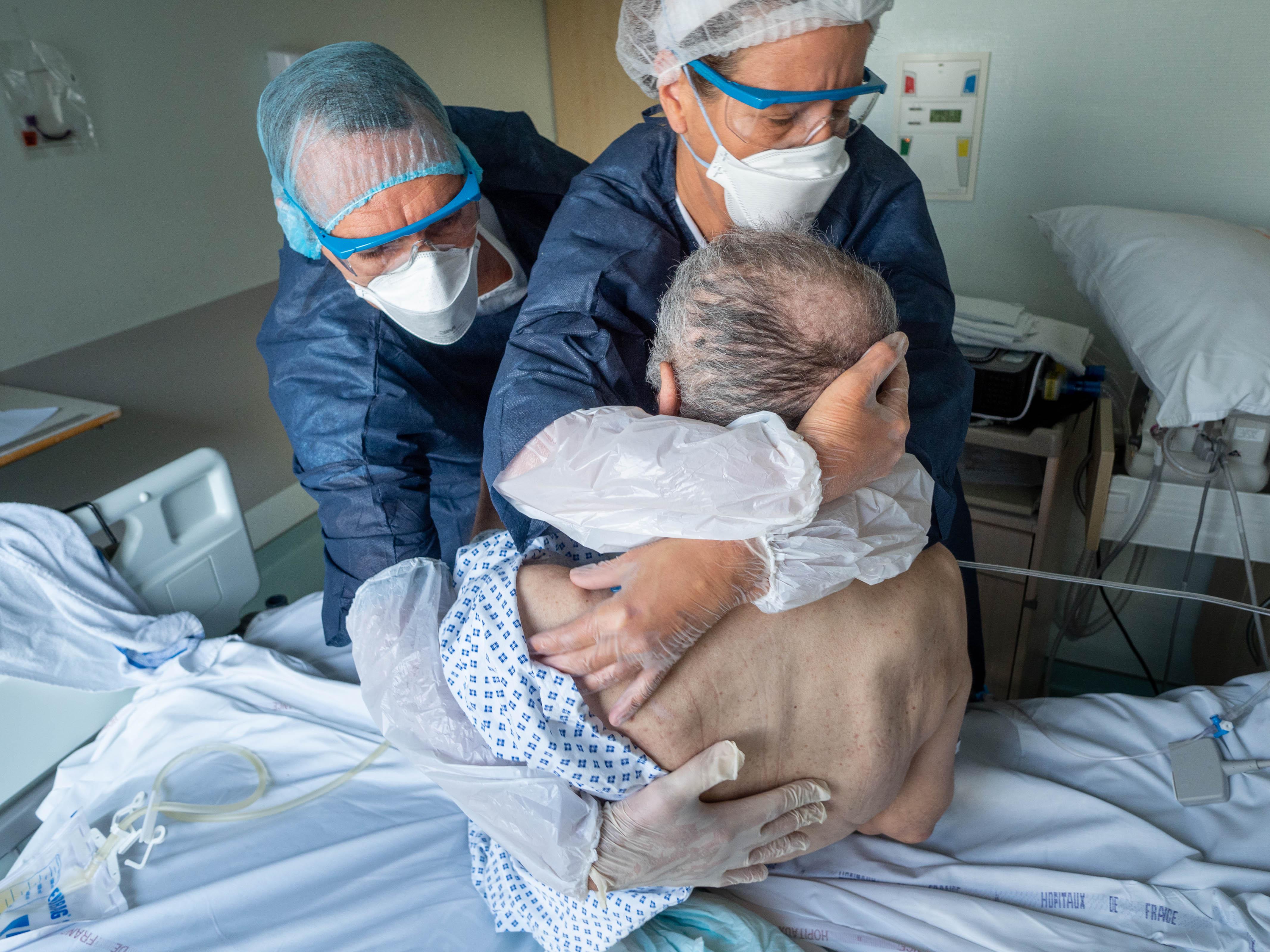Current nursing definitions
Photo credit: ©Nick Danziger / Association nationale des infirmières de Monaco

Definition of 'nursing’
Nursing is a profession dedicated to upholding everyone’s right to enjoy the highest attainable standard of health, through a shared commitment to providing collaborative, culturally safe, people-centred care and services. Nursing acts and advocates for people’s equitable access to health and health care, and safe, sustainable environments. The practice of nursing embodies the philosophy and values of the profession in providing professional care in the most personal health-related aspects of people’s lives. Nursing promotes health, protects safety and continuity in care, and manages and leads health care organizations and systems. Nursing’s practice is underpinned by a unique combination of science-based disciplinary knowledge, technical capability, ethical standards, and therapeutic relationships. Nursing is committed to compassion, social justice and a better future for humanity.
Definition of 'a nurse'
A nurse is a professional who is educated in the scientific knowledge, skills and philosophy of nursing, and regulated to practice nursing based on established standards of practice and ethical codes. Nurses enhance health literacy, promote health, prevent illness, protect patient safety, alleviate suffering, facilitate recovery and adaptation, and uphold dignity throughout life and at end of life. They work autonomously and collaboratively across settings to improve health, through advocacy, evidence-informed decision-making, and culturally safe, therapeutic relationships. Nurses provide people-centred, compassionate clinical and social care, manage services, enhance health systems, advance public and population health, and foster safe and sustainable environments. Nurses lead, educate, research, advocate, innovate and shape policy to improve health outcomes. Further, nurses play a unique role in health and care for populations of all ages, and in all settings, building trust with individuals, families and communities and gaining valuable insights into people’s experiences of health and illness. Building on a foundation of personalized direct and social care, nurses advance their capabilities through ongoing education, research and exploration of best practices.
A nurse’s scope of practice is defined by their level of education, experience, competency, professional standards and lawful authority. They play a key role in the coordination, supervision of, and delegation to others who may assist in the provision of health care.
Often at the front line, they respond to disasters, conflicts and emergencies, demonstrating courage, dedication, adaptability and commitment to the health of individuals, communities and the environment.
Abridged definition of 'a nurse’
A nurse is a professional who is educated in the scientific knowledge, skills and philosophy of nursing, and regulated to practice nursing based on established standards of practice and ethical codes. Nurses enhance health literacy, promote health, prevent illness, protect patient safety, alleviate suffering, facilitate recovery and adaptation, and uphold dignity throughout life and at end of life. They work autonomously and collaboratively across settings to improve health, through advocacy, evidence informed decision-making, and culturally safe, therapeutic relationships. Nurses provide people-centred, compassionate clinical and social care, manage services, enhance health systems, advance public and population health, and foster safe and sustainable environments. Nurses lead, educate, research, advocate, innovate and shape policy to improve health outcomes.
Documents
Renewing the Definitions of ‘Nursing’ and ‘a Nurse’
PDF (5 MB)
Renewing the Definitions of ‘Nursing’ and ‘a Nurse’ (German)
PDF (511 KB)
Renewing the Definitions of ‘Nursing’ and ‘a Nurse’ (Japanese)
PDF (49 MB)